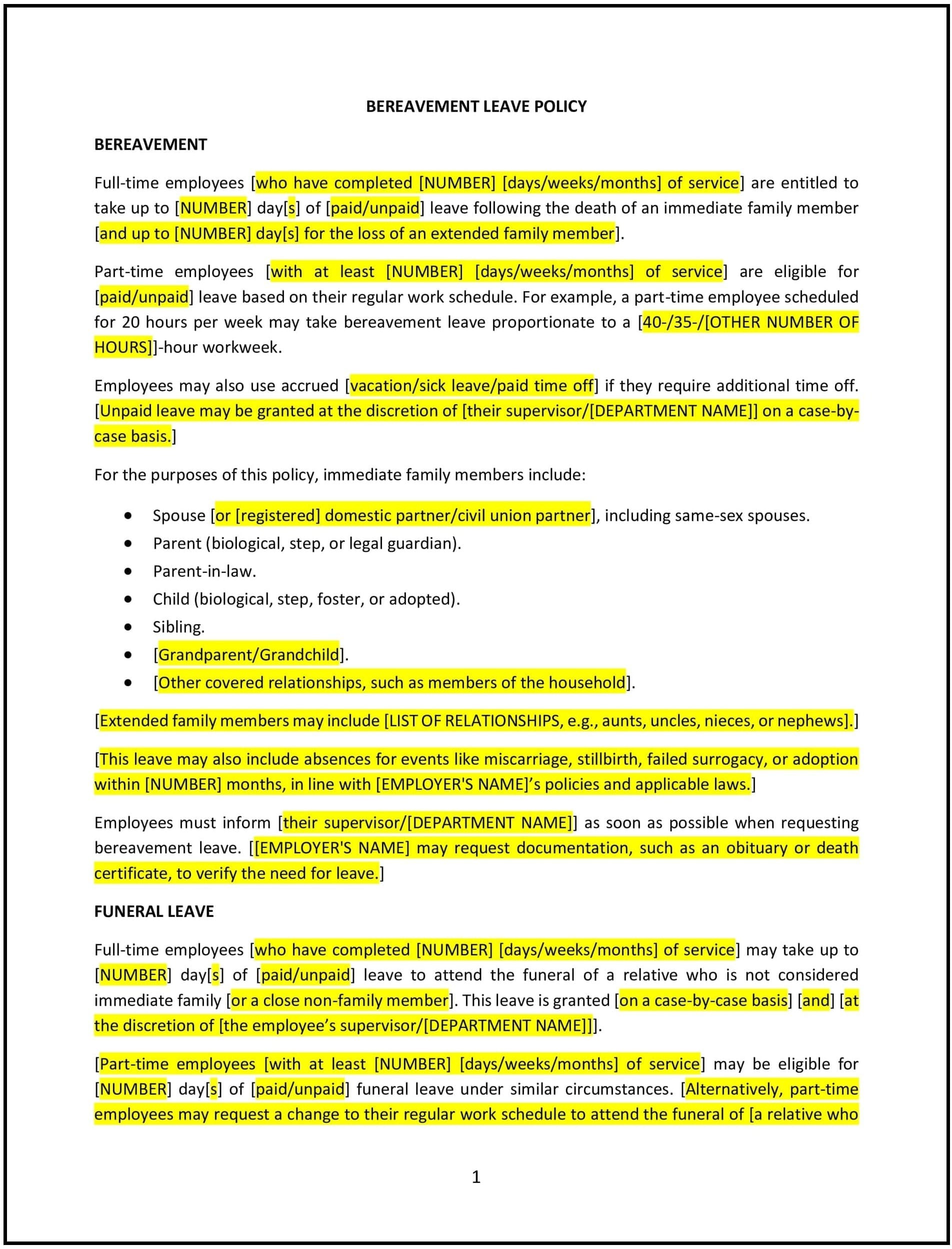Got contracts to review? While you're here for policies, let Cobrief make contract review effortless—start your free review now.

Customize this template for free
Bereavement leave policy (Wyoming)
In Wyoming, a bereavement leave policy helps businesses provide employees with the necessary time to grieve and manage personal matters after the loss of a loved one. While Wyoming does not mandate bereavement leave, implementing a clear policy demonstrates compassion and supports employee well-being.
This policy outlines the eligibility criteria, duration of leave, and procedures for requesting bereavement leave. It also allows businesses to customize the policy to reflect organizational values while accommodating Wyoming’s unique workforce dynamics, such as rural settings and industries with irregular schedules.
How to use this bereavement leave policy (Wyoming)
- Define eligibility criteria: Specify which employees are eligible for bereavement leave, such as full-time, part-time, or temporary employees. Clearly define qualifying relationships (e.g., immediate family members, extended family, etc.).
- Set clear guidelines for leave duration: Outline the amount of leave provided, such as three to five days, and whether additional unpaid leave can be requested. Adapt the policy to accommodate Wyoming’s unique workforce needs.
- Establish procedures for requesting leave: Include instructions on how employees can request bereavement leave, such as notifying their supervisor and providing supporting documentation, if required.
- Address pay during leave: Indicate whether bereavement leave will be paid or unpaid. Clarify how paid leave integrates with other leave policies, such as PTO or sick leave.
- Ensure flexibility: Consider allowing additional time off for employees who need to travel long distances, common in Wyoming’s rural areas.
Benefits of using a bereavement leave policy (Wyoming)
A thoughtful bereavement leave policy provides several benefits for Wyoming businesses:
- Supports employee well-being: Offers employees the time they need to grieve, attend funerals, and manage personal matters, reducing stress and promoting emotional health.
- Enhances workplace morale: Demonstrates the organization’s compassion and commitment to employee welfare, fostering loyalty and trust.
- Promotes fairness: Provides clear and consistent guidelines for managing bereavement leave, ensuring all employees are treated equally.
- Improves retention: Supports employees during difficult times, helping to retain valued team members and reduce turnover.
- Adapts to local needs: Addresses Wyoming-specific challenges, such as travel requirements or industries with demanding schedules.
Tips for using a bereavement leave policy (Wyoming)
- Consider local challenges: Include flexibility for employees who may need additional time due to Wyoming’s rural geography or unique workforce dynamics.
- Be compassionate: Encourage supervisors to approach bereavement leave requests with understanding and empathy.
- Communicate clearly: Ensure employees are aware of the policy and understand how to request leave when needed.
- Document consistently: Maintain records of leave requests and approvals to ensure transparency and fairness.
- Review periodically: Regularly assess the policy to align with changing employee needs or organizational goals.